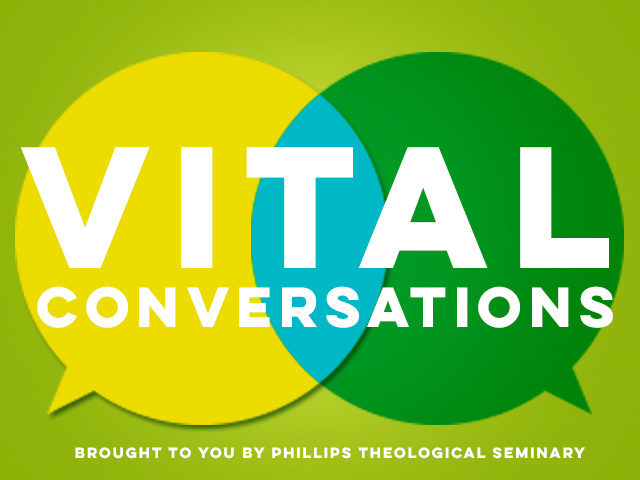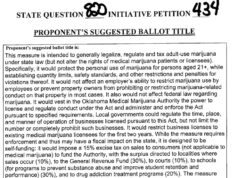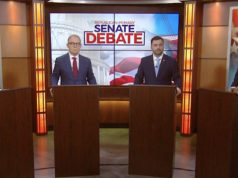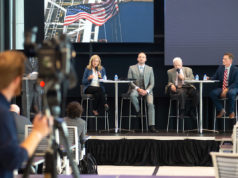(Editor’s Note: Vital Conversations is a running series of commentaries from various faith leaders. The series is sponsored by Phillips Theological Seminary, though contributions come from theologians who are unassociated with the seminary.)
The governor in Oklahoma wants citizens to vote on whether to change the state’s Constitution and allow a Ten Commandments monument on the State Capitol grounds.
The state’s Supreme Court has already ruled the display is unconstitutional, a decision that provoked both “Impeach them all!” and “Vote to change the constitution!” reactions from our elected representatives.
Since judges should not be impeached for upholding the law, the governor wants to change the law.
I don’t care if the argument is the Commandments are important to the history of the state or that the majority of people in the state belong to a religion that venerates the Commandments (regardless of whether or not we heed them).
Displaying the Commandments or any overtly religious symbol on state property is a terrible mistake.
Baptists since the time of Roger Williams, from the 1600s until recently, would have recognized the reason why entangling government with religious symbols is a mistake: Government is incompetent in matters of religion and, when given the chance, will use a religion for its own ends.
For Jews and Christians, the Commandments are not matters of history, but of faith. I don’t want any government to be given the power to determine or display elements of my faith. Period.
That said, there is a question — or an anxiety — in the Ten Commandments controversy to which I am sympathetic and which deserves attention.
The question is as follows (and the anxiety is a sense of something slipping away): What are the moral foundations of U.S. society, and how are those foundations being cultivated in today’s world?
The nation’s history displays the working answers to this question of moral foundations.
Some people, such as George Washington in his farewell address, believed religion must provide the moral foundations.
In the U.S., we invented something called “the Judeo-Christian tradition,” which was always more Christian than Jewish.
But that “mainline” tradition is certainly not the cultural centerpiece today that it was in, say, the 1950s. U.S. religious life today includes a vibrant variety of faith groups, an increasing option for no faith, and lowering participation rates in organized, historic expressions of faith.
So, while religion still provides moral foundations, there are more religions providing a foundation for fewer people than once was the case.
Thomas Jefferson argued that a robust public school system should provide the moral foundations necessary for U.S. democracy. Think McGuffey Reader of yesteryear and history and citizenship classes today.
Think also about the efforts to expunge everything from history that contradicts the claim to America’s innocence (a way of securing a kind of moral foundation based on American Innocence). Or, consider the efforts to tell the history more accurately as attempts to lay or repair moral foundations (breaking secrets, telling the truth, gaining trust).
But, with all the challenges public schools face, it would be hard to argue that public schools are primarily, generally and effectively the place to look for moral foundation building in U.S. society.
Of course, we all look to families to provide moral foundations. Americans like the stories political candidates tell about sitting on the knee of a parent or grandparent who taught them right from wrong by precept and example. But families are strengthened or diminished by the social fabric woven by supporting institutions such as schools and religions. See above.
So, where should we look? On whom should we rely today to develop the moral foundations of U.S. society?
While the Ten Commandments controversy fails to evoke that question directly, the conversation and argument regarding moral foundations is certainly worth having.
Previous installments of Vital Conversations
Vital Conversations: Christianity needs a Jon Stewart
Imam: A Muslim is your brother from another mother
Pope’s visit should ‘enrich our impoverished discourse’
Vital Conversations: Truth seekers can lose arguments
‘Vital Conversations’ help spiritual minds






















